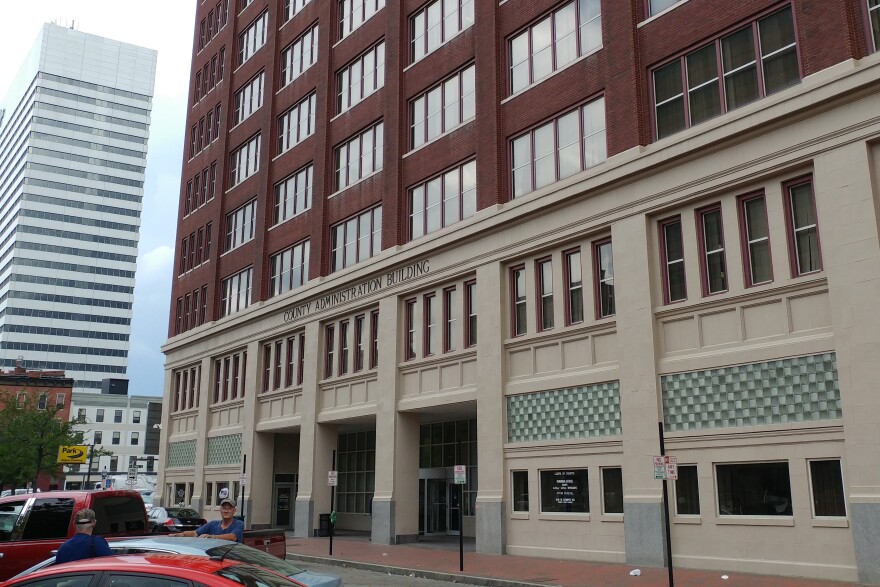A law firm is threatening to sue over Hamilton County's embattled sales tax. A letter from attorney Robert Pitcairn, Jr. of Katz Teller says since the resolution was an emergency measure, Ohio Revised Code required a unanimous vote. The two Democrats on the board, Todd Portune and Denise Driehaus voted for the tax. Republican Chris Monzel voted against it.
The letter to the county administrator also questions whether commissioners had two required public hearings before the vote. "We understand that the emergency provision of the Resolution-both in concept and the specific language declaring an emergency-was not introduced until after both public hearings had been noticed and completed. If this is true, then the Hamilton County Board of Commissioners did not conduct two public hearings on 'the resolution,' as required by R.C. (revised code) 5739.021," Pitcairn wrote.
Pitcairn would only identify his client as "a Hamilton County resident and taxpayer." He declined to say anything beyond what was included in the letter.
Administrator Jeff Aluotto wrote in a letter that "County Administration has discussed the matter with the Hamilton County Prosecutor’s Office and both believe that the resolution meets the requirements of the Ohio Revised Code."
Alutto says since the matter involves possible litigation, his office will not comment further.
Meanwhile, the county's Board of Elections is checking more than 38,000 signatures submitted by local Republicans, in an effort to put the sales tax on the November ballot. The board has until next Tuesday to verify the signatures are all from registered Hamilton County voters, and the petitions are valid.
Election officials say they've checked nearly 19,000 signatures on anti-sales tax petitions. 14,340 valid so far - 74.65%. rate. Backers of the tax repeal need 23,629 valid signatures. Turned in 38,065. Election officials have until Tuesday, Aug. 7 to complete petition checks.
— Howard Wilkinson (@howardwilkinson) July 31, 2018
WVXU's politics reporter Howard Wilkinson tweeted Tuesday that election officials reported nearly 75% of the 19,000 signatures were valid.
The tax was passed to address a budget deficit next year. If it does go into effect, it's expected to raise $23 million dollars the first year, and $30 million the next.



